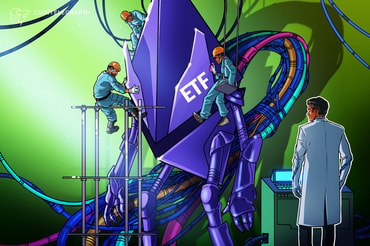Tokenized Treasuries: A Game-Changer for Collateral in Crypto Markets

Election 2024 coverage presented by
U.S. Treasuries have long stood as the bedrock of the traditional financial system, serving as collateral across various transactions, from repurchase (repo) agreements to derivatives trading. With an estimated $7.5 trillion in foreign holdings and daily repo transactions exceeding $4 trillion, these secure and liquid assets play a vital role in maintaining market stability and facilitating liquidity.
Recently, tokenized Treasuries have significantly evolved past earlier versions that were typically non-transferable or had inadequate liquidation processes incompatible with new products. The total value of tokenized Treasuries on-chain has reached an all-time high of $2.24 billion. In contrast, stablecoins (tokenized dollars) command a substantial $170+ billion, indicating that tokenized Treasuries are just scratching the surface and poised for rapid growth.
You’re reading Crypto Long & Short, our weekly newsletter featuring insights, news and analysis for the professional investor. Sign up here to get it in your inbox every Wednesday.
How Treasuries are used in traditional finance
In the traditional financial system, Treasuries are extensively used as collateral due to their safety, liquidity, lower credit risk, and stability, enabling vast amounts of leverage and liquidity across global markets. Here are some of the key markets where Treasuries play a pivotal role:
A new opportunity for crypto markets
The cryptocurrency and decentralized finance (DeFi) ecosystems currently lack access to stable, high-quality collateral besides stablecoin. Crypto and DeFi traders typically rely on volatile assets like bitcoin or ether as collateral for loans, staking, and liquidity pools. While effective, this system introduces significant risks, as the value of these assets can fluctuate wildly within short time frames, leading to over collateralization to mitigate risks. The alternative is to post stable coins that only earn a yield to the stablecoin issuers or selected market participants through opaque yield-sharing agreements.
Introducing tokenized Treasuries as collateral provides a better pathway for crypto, similar to what companies do in the previously described TradFi world. Since Treasuries are U.S. government debt, they don’t suffer from the extreme price swings of crypto or the lack of transparent yield and counterparty risks of using stablecoins. Using tokenized Treasuries can fundamentally reduce risk, expand liquidity, enhance transparency and improve returns by earning yield on the collateral.
Innovations in tokenized treasury products lead to efficiency in ways often lacking in traditional finance. Blockchain technology makes it possible for fully on-chain tokenized treasury funds to allow for rapid issuance, instant redemptions, and instant peer-to-peer trading. This capability makes traditional assets more productive within the crypto ecosystem, opening up new pools of capital.
Factor in all these elements, and you see how tokenized Treasuries can provide a familiar and secure asset that traditional investors already trust. Other potential new types of financial products that could emerge include:
Tokenizing U.S. Treasuries and using them as collateral in crypto markets presents a significant opportunity to merge the best aspects of traditional finance with the innovation of DeFi. By reducing volatility, deepening liquidity, and attracting institutional capital, tokenized Treasuries could revolutionize both markets, unlocking a new era of hybrid finance.
Note: The views expressed in this column are those of the author and do not necessarily reflect those of CoinDesk, Inc. or its owners and affiliates.
Edited by Alexandra Levis.
Disclosure
Please note that our privacy policy, terms of use, cookies, and do not sell my personal information have been updated.CoinDesk is an award-winning media outlet that covers the cryptocurrency industry. Its journalists abide by a strict set of editorial policies. CoinDesk has adopted a set of principles aimed at ensuring the integrity, editorial independence and freedom from bias of its publications. CoinDesk is part of the Bullish group, which owns and invests in digital asset businesses and digital assets. CoinDesk employees, including journalists, may receive Bullish group equity-based compensation. Bullish was incubated by technology investor Block.one.

Published on Other News Site












